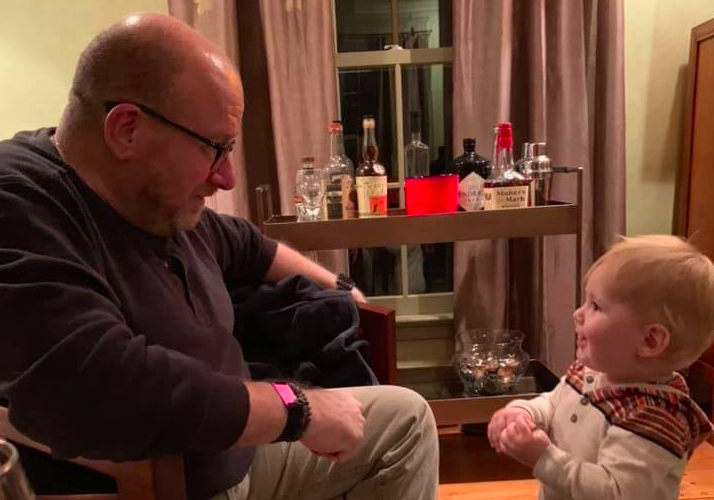Every week in the Being Patient weekly newsletter, founder Deborah Kan shares a thought with readers. This holiday, she reflects on what she is grateful for.

This holiday season, I am reflecting on how many other people will get a dementia diagnosis and how many families will embark on a journey they didn’t choose or hope for. When I started Being Patient, I didn’t exactly understand how much of a steep learning curve I had to truly understand a disease that was taking my mother’s brain. So, this Christmas, I am most grateful to the many people who have most helped me with this understanding — the people who have been diagnosed with dementia.
People like Phil Gutis, diagnosed with early onset Alzheimer’s and a reporter for Being Patient, often gives our editorial team a sobering perspective on topics like the imminent blood test for Alzheimer’s disease. As the science world applauds it as a revolutionary breakthrough for detection, Phil fairly pointed out that if he learned he was on the road to Alzheimer’s in his 20s (instead of in his 50s), it would have significantly changed his life — and not for the better!
Jeff Borghoff, another team member with early onset, who has tirelessly spent hours helping Being Patient with the technical aspects of our website, also shared with us what it was like to be a clinical trial participant. Part of the Biogen trial, Jeff went from being on the drug aducanumab, to being abruptly pulled from the trial, and then going back on the drug a year later, when new data allowed the trial to continue. Treated like a human yoyo, Jeff shared his emotional journey with our audience giving us a first hand look at the human side of being a trial participant.
I am also grateful for people like Don Kent and Mike Belleville who shared their stories of misdiagnosis. Mike lived for years thinking he had early onset Alzheimer’s before he was correctly diagnosed and Don had to see seven neurologists before he too found out he had Lewy body dementia. From the amount of comments we have received from sharing their stories, I am beginning to think that doctors need to improve on diagnosing Lewy body dementia. Typically characterized by vivid hallucinations, Don had to see six doctors before he finally found out that altered taste (sweet tasted salty and vice versa) was a form of hallucination.
If there is ever a way to make neurodegeneration look joyful, Arthena Caston does just that. Arthena is just one of those people who you want to spend more time with because her positive energy is inspirational and contagious. As an African American, Arthena is moving mountains in her community by speaking to church parishioners about how you don’t have to live in shame of neurodegeneration. She is a critical foot soldier who can inspire other African Americans to participate in clinical trials, a huge gap to fill as Blacks are disproportionately impacted by Alzheimer’s compared to whites, who make up the majority of clinical trial participants.
As we continue to cover the road to a cure to Alzheimer’s and other dementias on Being Patient, I am grateful to the people I have met along the way who make me look at dementia with more compassion and inspiration. They have taught me a diagnosis doesn’t have to be a symbol of the end of life but rather a new beginning.
Wishing you all a happy holiday season,
Deborah





